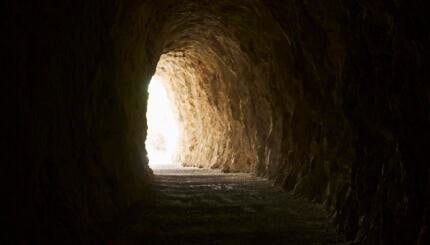Most moderns live life on the run. You probably don’t need any reminder, but the Bureau of Labor Statistics reports that the average American claims just 17 minutes per day to relax and think. If you’re like most Americans, you’re running out of time just reading this post.
Modern life has traveled far from the perhaps mythic ideal of Talmud’s sages, who set aside distractions for fully an hour before thrice-daily prayer (Talmud, Berachot 30b). Plainly they didn’t live at the pace of iPhones and split-second commodity futures trading. Ancient mystics who sat for hours in meditation never sat in rush hour traffic, late for a meeting, perilously low on fuel, while desperately needing a bathroom.
Spirituality and mindfulness, we’re told, need the spaciousness of time – yet precisely in all our society’s collective wealth and productivity, most multitasking moderns feel starved for time. Is it any wonder that spiritual wonder sometimes seems so elusive?
The upcoming High Holy Days challenge us to ask: Where is God at the speed of life? Maybe even more importantly: where are we at the speed of life? Where are we when we race – whether literally in body, or in our minds? How can we answer these questions if we don’t bask in time-intensive prayer or regular meditation?
We fast-paced moderns can indeed answer these questions – and, for our spiritual survival and sanity, we must.
The Psalmist wrote, Shiviti Adonai l’negdi tamid – “I will keep God before me always” (Ps. 16:8). Centuries earlier, Moses encountered God in a common thorn bush (Ex. 3:2). Later, Moses was recorded to teach that ein od milvado – “There is nothing else but God” (Deut. 4:35). These teachings all offer a common promise: awareness of holiness “always” is in our reach “everywhere,” even in “common” contexts. Whatever we may believe or sense in our frenzied pace, tunnel vision, distraction or religious predilections, the God of “always” and “everywhere” must mean God also – even precisely – at our speed of life.
Nice words, but do “always” and “nothing else” really help at the speed of life? Panentheists like Rabbi Art Green offer that everything is part of God: we, our iPhones, traffic jams and everything are part of the unfolding of evolutionary Being, all of them flowing with the potential for holiness. But even if we can imagine it cognitively, few find panentheism especially moving (and I know none who even say “panentheism”) while going nowhere fast in traffic.
For me, the power of “always” and “everywhere” is less in theology than empowerment. By definition, “always” includes now and “everywhere” includes here – no exceptions. If so, then heightened awareness beckons not despite but precisely from daily life’s rough and tumble. When we forget – and we all do – it’s not because cosmic reality changed, but because we stopped paying attention.
As New York Times columnist Frank Bruni recently wrote, how we focus our attention can invest even the most routine daily experience – even sitting at one’s desk, or getting one’s teeth cleaned – with the power to elevate the seemingly ordinary. This is the high potential of “now.” Shiviti Adonai l’negdi tamid: “I will keep God before me always” – even in the dentist’s chair, even in traffic.
The lyricist of “Hello, Dolly!” knew that “It only takes a moment to be loved a whole life long.” It only takes a moment to find our breath, notice a sunrise, smile at a passerby, or count a blessing. It only takes a moment to reclaim “now” – but make no mistake: this isn’t easy spirituality. Claiming a moment (then another, then another) is the teshuvah (spiritual return) to which we re-commit at Rosh Hashanah. Tools of spiritual life – prayer, study, meditation, reflection, good deeds – empower us to make Godly moments “always” and “everywhere.” What would the world be like if we all made a whole year of holy moments like that?
Try it next time you’re stuck in traffic.
Moved by this post? Join the conversation through MyJewishLearning’s weekly blogs newsletter.
Adonai
Pronounced: ah-doe-NYE, Origin: Hebrew, a name for God.



